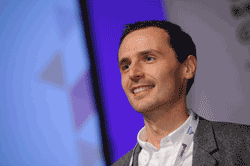Economic benefits rather than ecological ones appear to be driving the consumer’s growing commitment to sustainability, according to Dominic Harrison, global trends director at the Futures Foundation.
He told HTA conference delegates that IPSOS/MORI research had shown that concerns about the environment peaked in 2007, when consumers ranked them higher than the economy, but the enthusiasm waned with the onset of the economic crash in 2008, with levels of personal concern falling from 56% to 44% between 2009 and 2014.
 People were acting on their concerns by recycling more and saving energy, “but most of these things have economic benefits, so while commitment seems to be growing, it is economics, rather than ecology, that is driving it,:” he said.
People were acting on their concerns by recycling more and saving energy, “but most of these things have economic benefits, so while commitment seems to be growing, it is economics, rather than ecology, that is driving it,:” he said.
He believed businesses should have a core position on sustainability but should not ignore the issues of cost, value pricing, quality and service.
Harrison offered insights on the likely rise of the “connected consumer”. By the end of the decade 90% of under 45s would own smartphones. There was a “different type of lifestyle” ahead, with 16% of adult users already possessing health-tracking apps. Homes and gardens were steadily becoming “connected”.
However, seven out of 10 people now agreed that the stresses of modern life meant that many people were less happy than they used to be, with one in five practising mindfulness or meditation. IKEA had identified that horticulture was an antidote modern lifestyle stresses.